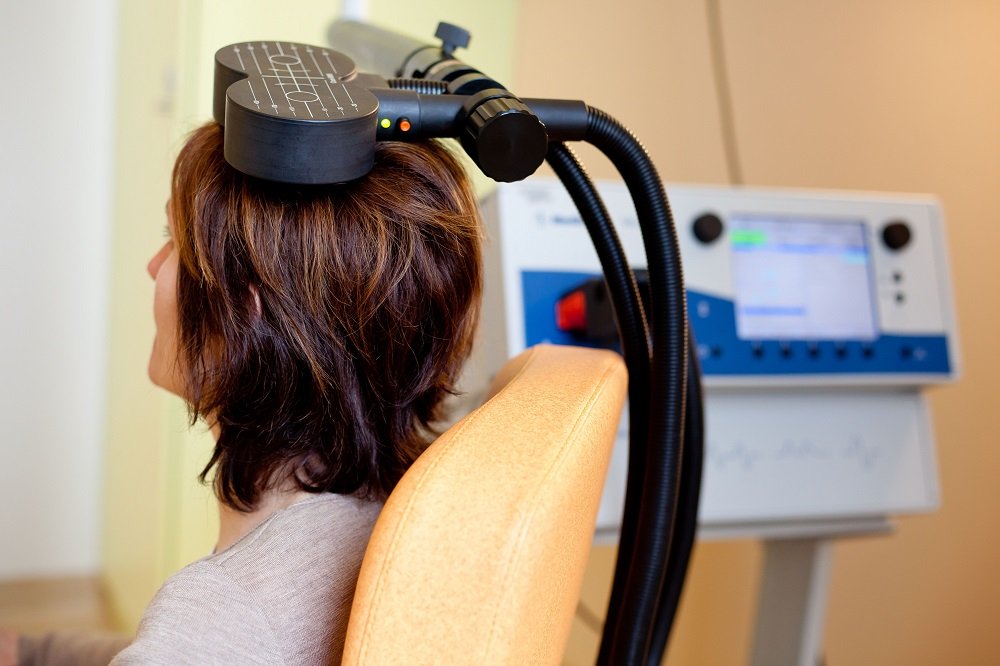Schizophrenia, one of the most chronic and disabling mental health disorders, affects approximately 1% of the global population. For decades, the primary treatment has been antipsychotic medications, which effectively manage positive symptoms such as hallucinations and delusions. However, these treatments often fail to address the negative symptoms—diminished emotional expression, lack of motivation, and cognitive impairments like poor attention and memory.
Now, new research from Fujita Health University, Japan, offers a beacon of hope. Published in JAMA Network Open, this study led by Dr. Taro Kishi and his team identifies intermittent theta burst stimulation (iTBS) over the left dorsolateral prefrontal cortex (DLPFC) as a promising non-invasive alternative for treating schizophrenia.
What is Theta Burst Stimulation (TBS)?
Theta burst stimulation (TBS) is a form of repetitive transcranial magnetic stimulation (rTMS), which uses magnetic fields to stimulate nerve cells in the brain. Unlike traditional rTMS, TBS delivers short bursts of high-frequency stimulation, making it more efficient and potentially more effective.
The study focused on intermittent TBS (iTBS)—a protocol that alternates periods of stimulation with rest. By targeting the left DLPFC, a brain region involved in executive functions, emotional regulation, and cognitive processing, iTBS aims to improve the underlying neural circuitry associated with schizophrenia.
Key Findings from the Study
The researchers conducted a systematic review and network meta-analysis of 30 randomized, sham-controlled trials, involving over 1,400 participants. Their analysis revealed several critical outcomes:
Significant Improvement in Negative Symptoms:
iTBS over the left DLPFC led to notable reductions in negative symptoms, such as apathy, social withdrawal, and reduced emotional expression.
Enhanced Cognitive Function:
Participants showed improvements in attention, memory, and executive functioning, addressing a long-standing gap in schizophrenia treatment.
Reduction in Anxiety and Depressive Symptoms:
iTBS also alleviated anxiety and depressive symptoms, further enhancing patients’ overall quality of life.
High Tolerability and Safety:
The iTBS protocol was well-tolerated, with minimal side effects, making it a viable option even for individuals who may struggle with the side effects of traditional medications.
Challenges and Future Directions
Despite the promising findings, the researchers acknowledge certain limitations:
Small Sample Sizes:
The meta-analysis included a relatively small number of participants, underscoring the need for larger, more diverse studies.
Concurrent Medication Use:
Many participants were taking psychotropic medications during the trials, which may have influenced the results. Future research will aim to isolate the effects of iTBS from those of medication.
•Long-Term Effects:
While the immediate benefits of iTBS are clear, its long-term efficacy and safety remain to be fully explored.
Looking ahead, the team plans to conduct large-scale, long-term studies to refine the protocol and assess its effectiveness across different subgroups of people with schizophrenia.
A New Era of Schizophrenia Treatment
For individuals living with schizophrenia, this research represents a paradigm shift. iTBS over the left DLPFC offers a non-invasive, well-tolerated, and potentially life-changing treatment option. As the scientific community continues to explore and refine this technique, it may soon become a standard part of the therapeutic arsenal for schizophrenia and beyond.
With further research and clinical validation, theta burst stimulation could transform how we approach some of the most challenging symptoms of mental illness, offering new hope to millions worldwide.
For more information, visit Fujita Health University’s website or read the full study published in JAMA Network Open.
Max E. Guttman is the owner of Mindful Living LCSW, PLLC, a private mental health practice in Yonkers, New York.
- Max E. Guttmanhttps://mentalhealthaffairs.blog/author/max-e-guttman/
- Max E. Guttmanhttps://mentalhealthaffairs.blog/author/max-e-guttman/
- Max E. Guttmanhttps://mentalhealthaffairs.blog/author/max-e-guttman/
- Max E. Guttmanhttps://mentalhealthaffairs.blog/author/max-e-guttman/







